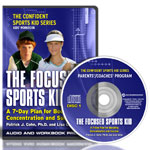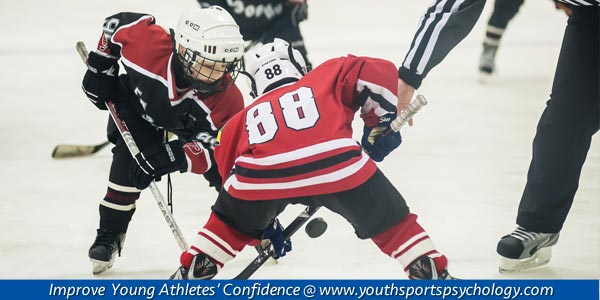Changing Sports Kids’ Focus
Young athletes want to feel like winners – whether or not they are always scoring and beating their opponents.
Sports parents can help their kids feel good about their experiences simply by taking the focus off the win.
David Jacobson, a spokesman for the Positive Coaching Alliance, says his organization wants to re-define the term winning in ways that provide important benefits to young athletes.
“Of course people want to win,” says Jacobson. ‘”My organization advocates trying as hard as you can to win. But there’s more going on than finishing with the highest score. There are so many educational opportunities. For example, if you can put forth maximum effort, you become a winner. If coaches and sports parents can frame conversations in this fashion, kids don’t feel as nervous. They are more likely to feel successful and be successful,” he says.
For example, let’s say your young athletes are outsized and outmatched.
How can you help them feel like winners?
“Ask them to go into the game against a formidable opponent with an eye toward succeeding in small ways,” says Jacobson.
Give young athletes specific objectives that help them attain excellence. For example, in soccer, a coach might ask kids to try to nab every loose ball.
Even if the final score is 5-0 and your team loses, if you’ve gotten to every loose ball, you’ve won a small victory that imparts confidence to kids!
In sports psychology, we call this:
Focusing on manageable objectives or small, easy-to-accomplish goals.
Coaches and parents should ask kids to do this to help them focus on effort, rather than outcome.
When kids are too focused on results and wins, it’s a huge distraction. It’s harder for them to succeed and feel confident and focus on the things they need to do to execute well in the present moment.
As a sports parent or youth coach, it’s your job to help kids identify and focus on mini-objectives. Ask them to try and get aim for two rebounds in basketball, or to focus on making four out of six quality shots on goal.
Change their mindset.
Help them enjoy the game more by focusing on the process and the fun!
You can also help build kids’ sports confidence and success by consistently telling them mistakes are okay, says Jacobson.
“You have to impart the notion that mistakes are okay. The greatest success occurs if you make mistakes. You can’t learn–or get to other side of envelope–if you don’t push yourself and make mistakes,” he says.
For example, you’re not learning as an ice skater unless you’re falling down.
Not only do you need to tell kids mistakes are okay. You need to reward them for making them and use them as a learning opportunity.
“You want them to keep trying to be aggressive and willing to push the outside of the envelope,” he says.
“Through positive reinforcement, tell the athlete at every turn, ‘You didn’t get the ball there, but you tried something new, and that’s a step in the right direction. Great work’,” he explains.
Award winning parenting writer Lisa Cohn and Youth Sports Psychology expert Dr. Patrick Cohn are co-founders of The Ultimate Sports Parent.
Pick up their free e-book:
Ten Tips to Improve Confidence and Success in Young Athletes
Related Articles on Youth Sports:
- Parent: How to Support your Female Athlete
- How Playing Sports Can Help Kids Transition to Reopening
- How the Mental Game Helps Elite Athletes and Others
*Subscribe to The Sports Psychology Podcast on iTunes
*Subscribe to The Sports Psychology Podcast on Spotify
Help Your Young Athletes Improve Focus In Sports!

Are your young athletes easily distracted by people shouting on the sidelines? Do they obsess over their mistakes? Do they worry about what people think of them?
These issues will cause their concentration and performance to suffer!The Focused Sports Kid helps kids overcome distractions that can hurt their performance in sports.
The Focused Sports Kid program is actually two programs: one for sports parents/coaches that provides mental game tips especially designed for parents and coaches, and for young athletes, ages 8 to 12, that will walk them through 7 simple lessons in mental focus in sports.

